Bulk editing multiple resources from the UI
Overview
As the number of resources you have grows, it can be difficult to make changes to them and keep them all in sync. Fortunately data.world allows you to select and edit multiple datasets, projects, or catalog resources at one time. As with editing a single resource, you can edit multiples of any resource to which you have write permissions. The edits you can make are to the metadata for the resource--you cannot edit the data itself.
Note
This feature does not support:
Modifying the contributors to a dataset
Modifying relationships to and from catalog resources
Quick editing is available for the following resources in the application:
Datasets
Projects
The following additional resources are available only for organizations with the Enterprise license:
Glossary (for details, see Bulk uploading and editing business glossary.)
Tables
Columns in tables
Analysis
Subtypes of Glossary, Tables, and Analysis resources
Quick editing multiple resources from the UI
To get to the resources available for quick bulk editing:
For a list of resources available for bulk editing in an organization, go to the Catalog experience > Resources page. From here you can bulk-edit resources like Analyses, Tables ,Columns.
Important
Note that only users with the Edit or Manage access to All catalog resources at the organization level can bulk edit resources from the Resources page. For details about permissions, see Planning user groups and their access levels.
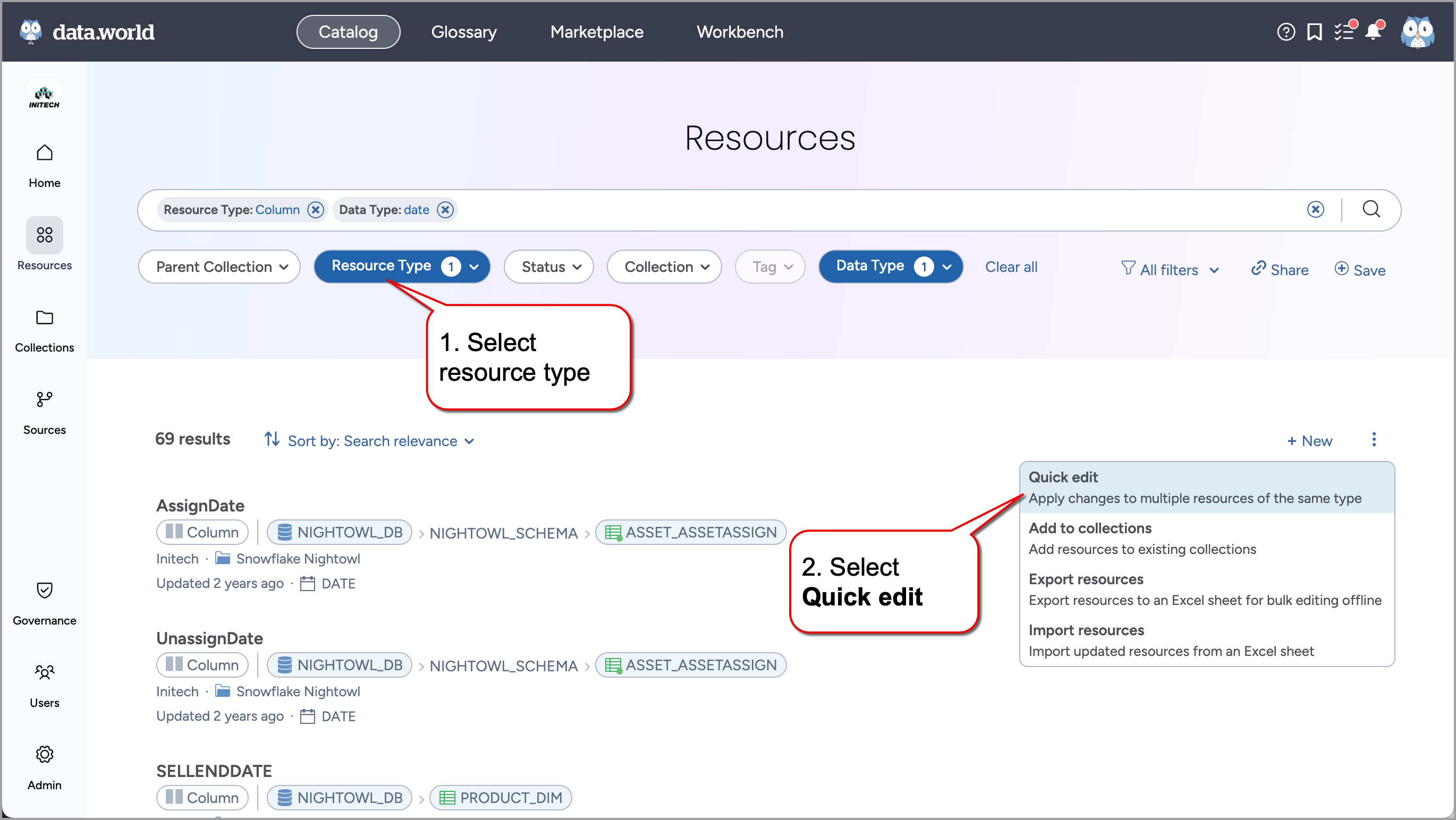
To edit a list of resources in a collection, go the Collection page, Contains tab. From here you can bulk-edit the resources available in the specific collection. Select the resources you want to edit and select the Quick edit resources option from the Actions dropdown.
Important
Note that only users with the Edit or Manage access to the specific collection or Edit or Manage access to All catalog resources at the organization level can bulk edit resources in collections. For details about permissions, see Planning user groups and their access levels.
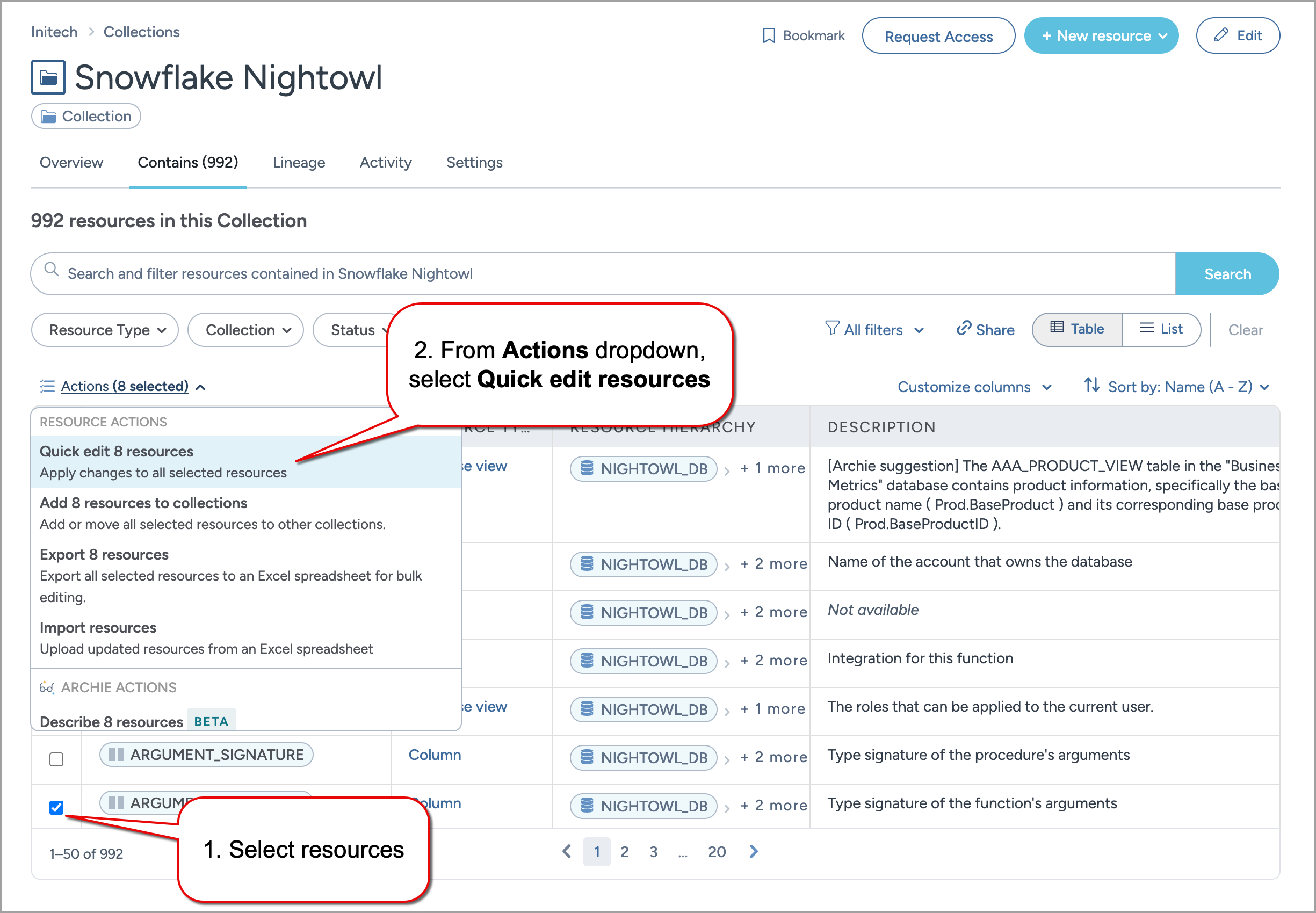
To edit a list of columns in table, go to the Table page, Columns tab. From here you can bulk-edit the tables in the column.
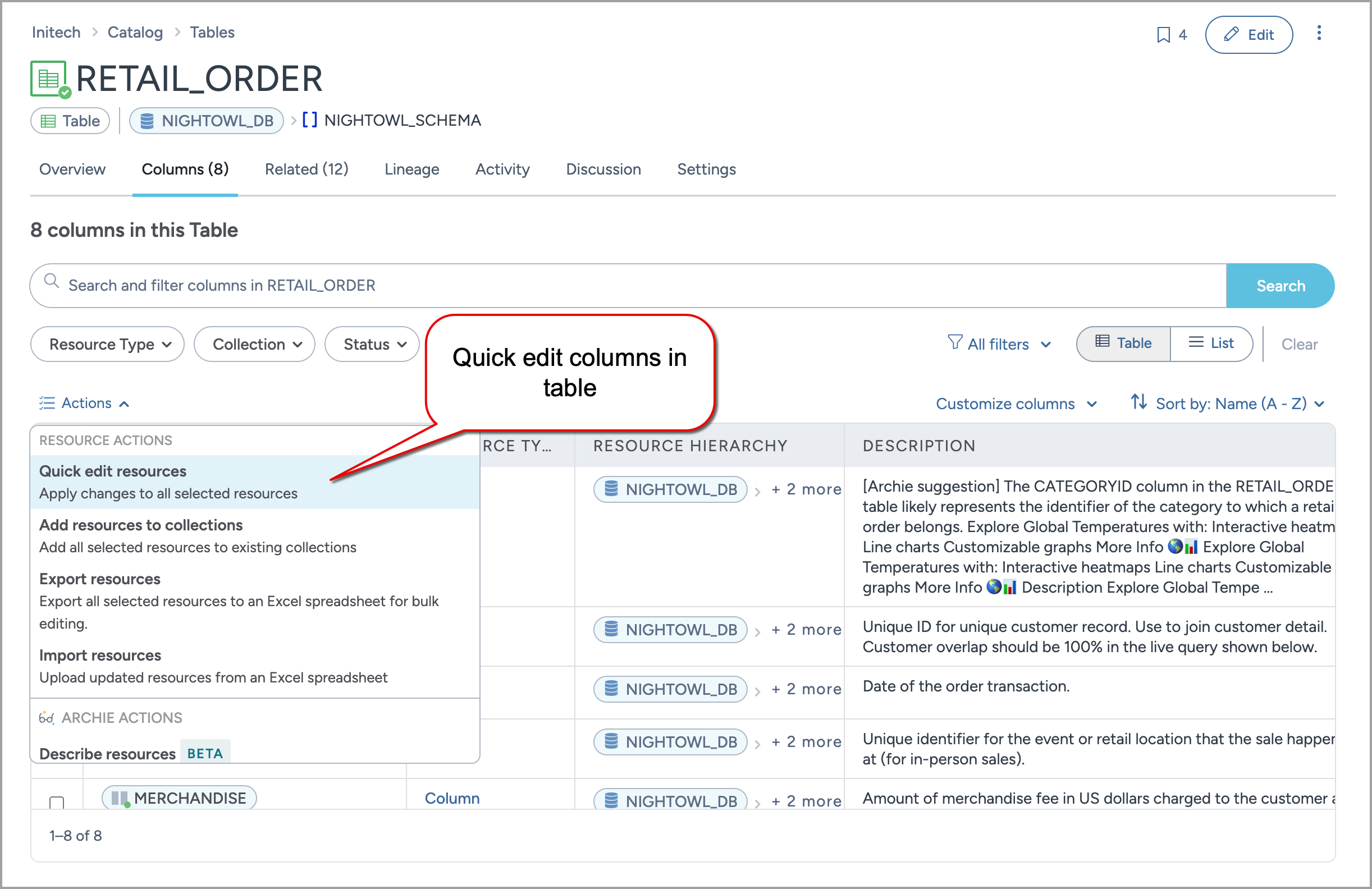
To bulk-edit a list of related resources, go to the Related tab on a resource page.
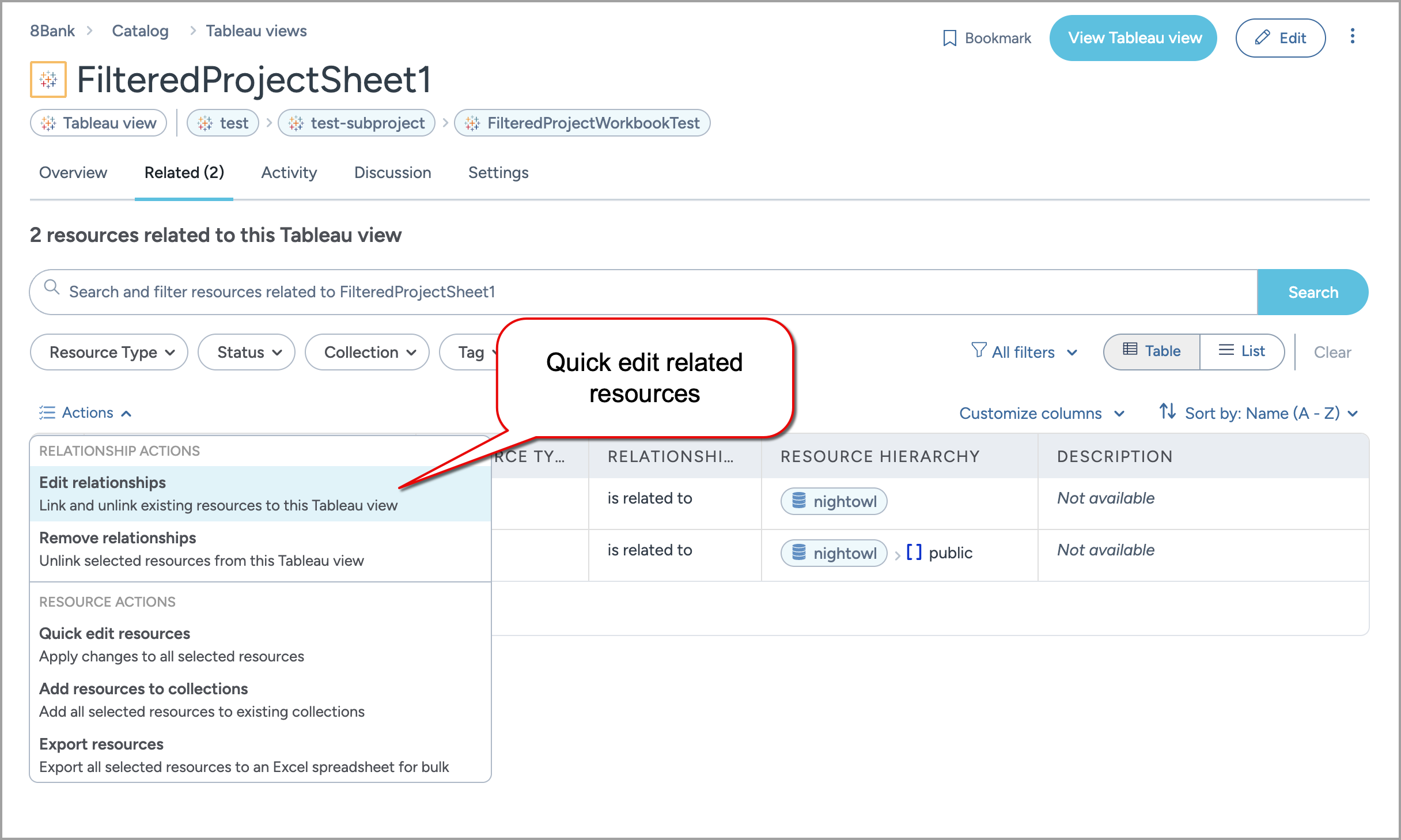
To quick bulk edit resources:
Click the Three dot menu and select Quick edit.
On the Select Resource page utilize the filter tools, search options, and advanced search capabilities to hone in on the specific resources you want to modify. Any filters selected on the main Resources page are already applied and can be adjusted as needed.
Choose the resources for editing and loop through the various search methods to get your list ready for editing. The list of Selected resources is maintained as you scroll through different search options in preparation for editing.
When you select a table, an additional option, Automatically include columns for selected tables, becomes available. Use this option to automatically include the columns associated with the selected table.
The Select Resource screen has a paginated list of resources with 50 resources per page, with a maximum of 2000 resources. If you have more than 2000 resources for a type, you will need to apply filters to gain access to additional resources that are initially not visible.
Important
Only 2000 resources can be selected at a time for editing. If you have more than 2000 resources to edit, edit the first batch of 2000 resources and then use the sort option Least recently updated first to segregate the batch that has already been edited.
Click the Continue to select changes button.
On the Select changes screen, make the required changes. The options available for editing will vary based on the metadata profile configured for the selected resources. You can use this Select changes screen to also quickly move around resources between collections. Once you are done with your changes, click the Edit resources button.
There are a few options when editing fields.
In fields like Tags, users can Add to existing, Replace existing, or Clear all values:
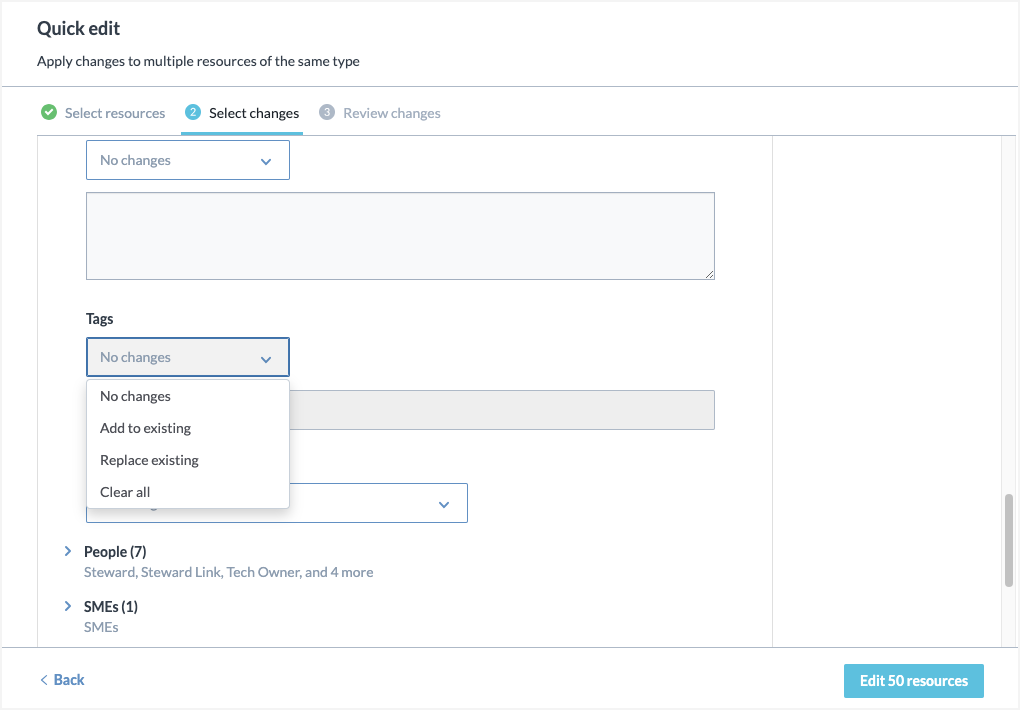
In fields like Status you get an option to either select a status or remove status by selecting No status.
Note
To clear the value for such fields, select Replace existing and leave the field blank.
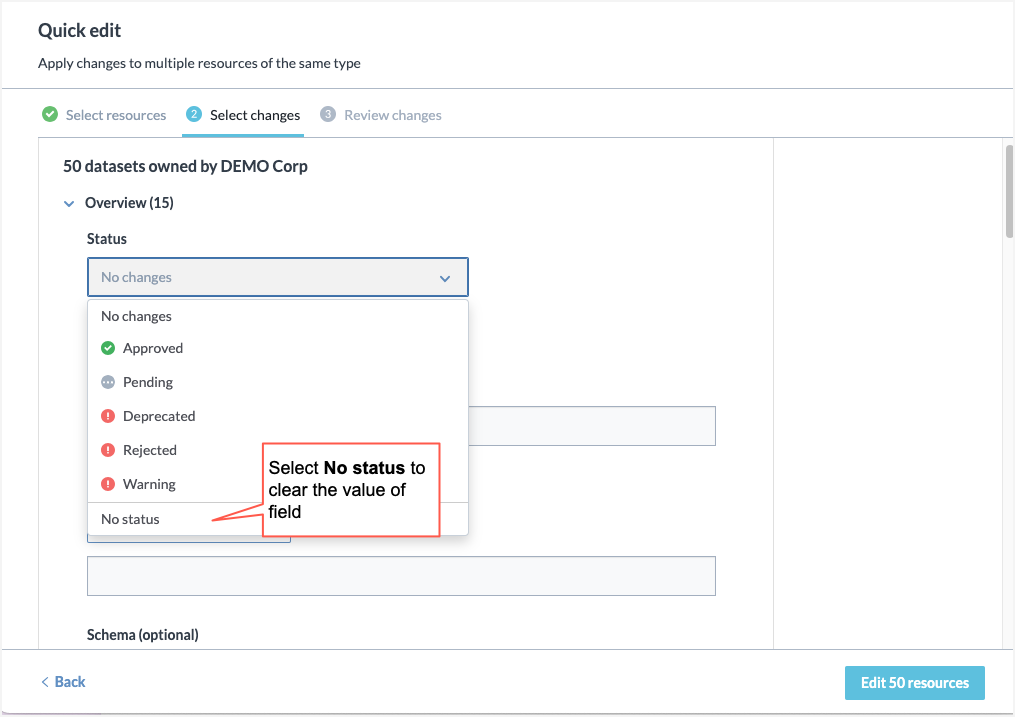
Other fields are simple text fields. In this case, you may either elect to not change the current value, or to replace the value entirely.
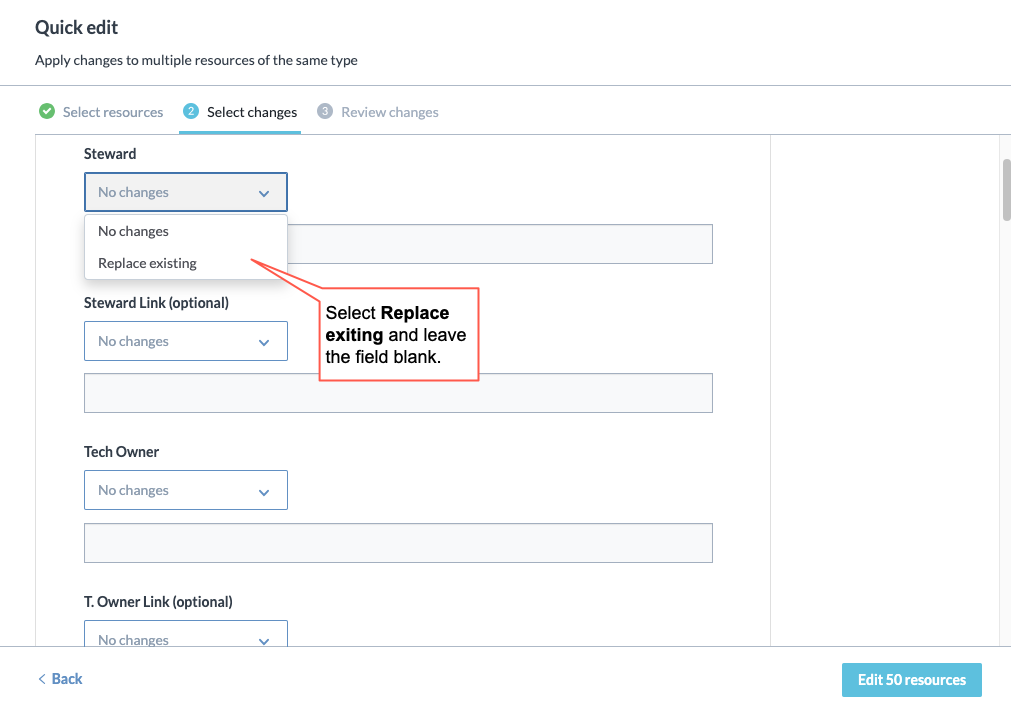
Some fields have complicated hierarchies of values. Those are often separated into their own section. In this case, the user can use: Add to existing, Replace existing, or Clear all.
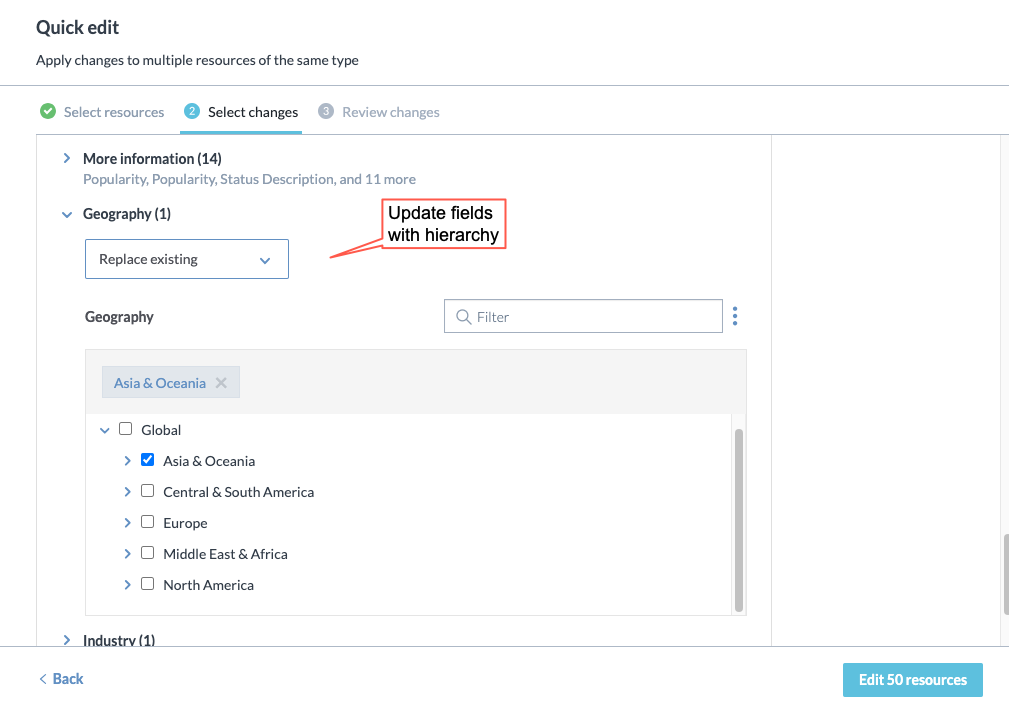
Once you are done with your changes, click the Edit resources button.
On the Review changes screen, review your changes and click the Confirm changes button.